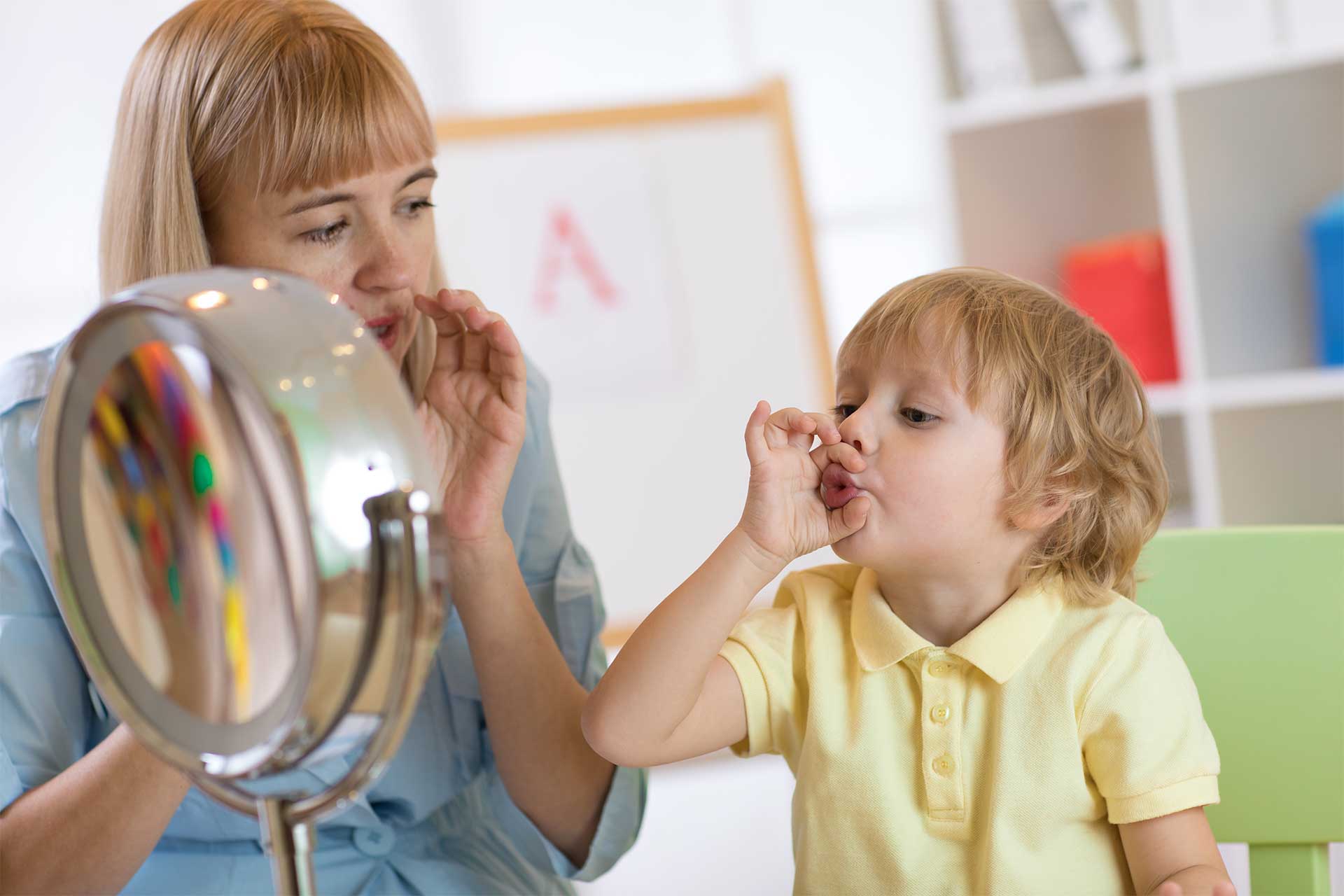Any difficulty with perception, motor production, and representation of speech sounds and segments.
Speech Sound Disorders affect:
- The ability to produce the sounds of single words and in connected speech
- The language comprehension
- The oral-motor functioning
- The orofacial structure
- The child, while talking, produces sound errors
- The child’s speech is unclear and includes omissions, additions, reversal of syllables, substitutions and distortions
- The child finds it difficult understanding syllables
- Omissions: Certain sounds are omitted when speaking
- Substitutions: Certain words are substituted, resulting in a loss of phonemic contrast.
- Additions: Unnecessary extra sounds are added to a word
- Distortions: Sounds are not pronounced properly
- Syllable-level errors: Certain syllables which are difficult to pronounce are removed.
- Encouraging the child to self-monitor and self-teach their learned speech skills.
- Collaborating with special needs personnel in schools to provide special facilitations in exams or homework.
- Working on how to improve self-esteem in the case of bullying.
Nonspeech Oral Motor Therapy: Involves training the oral motor of children or adults to help remove any deficiencies in oral-motor strength that cause poor pronunciation of words and to teach control when pronouncing the words.
Speech therapy: involves focusing on the ability to produce properly a word with one or more syllables, and the ability to repeat and produce a sentence clearly.
At TBC, our Lebanese Therapists in Dubai provide therapy sessions in Arabic, French, and English to help clients overcome mental health challenges such as anxiety, depression, and trauma, as well as occupational therapy, psychomotor and speech therapy.

